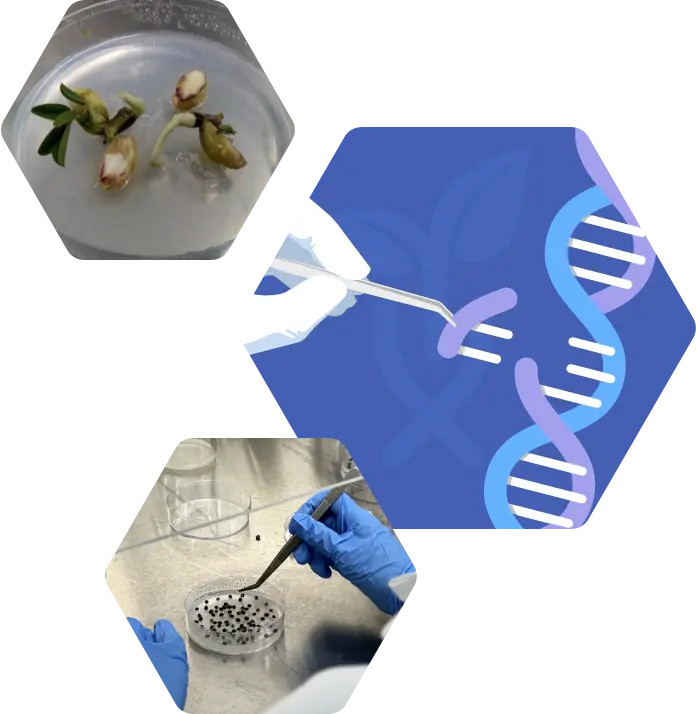Revolutionizing Peanut with non-GMO CRISPR Technology
Optimizing oleic/linoleic ratio & high protein content enhancing health benefits and economic value
Why Peanuts Matter
Peanuts are more than a snack—they are a powerful tool for nutrition, food security, and economic development across the globe.
Nutritional & Health Value
High protein and oil content make peanuts a vital food source, especially where access to animal protein is limited.
Rich in unsaturated fats, particularly oleic acid in high-oleic varieties—linked to heart health.
A truly affordable superfood, peanuts provide essential nutrients such as niacin, folate, vitamin E, and magnesium. A critical cash crop for developing nations, fueling trade and rural development.
The CRISPR Advantage
Traditional breeding has struggled to improve peanut traits due to several biological and technical barriers.
CRISPR enables precise, efficient, and rapid improvement where conventional tools fall short.
Scientific Bottlenecks in Classical Breeding
Genome complexity
Peanuts are allotetraploid (AABB), making trait selection and breeding more difficult.
Linkage drag
Beneficial traits from wild species often carry unwanted traits.
Slow breeding cycles
Just one generation per year
limits progress
Limited natural variation
Few elite lines naturally possess desirable traits like high oleic content.
Why CRISPR matters
Gene editing can optimize the oleic/linoleic acid ratio—supporting heart health and product shelf life.
Food processors benefit from shelf-stable, high-quality oil without hydrogenation.
A differentiated, high-demand crop with export potential.
Lower input requirements and fewer industrial processing steps.

Vision & impact
At MaxEditas, we envision a world where gene-edited crops contribute meaningfully to climate adaptation, food security, and rural prosperity. Our work with peanuts is just the beginning.
